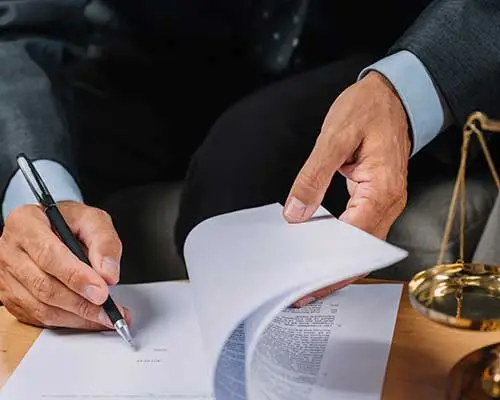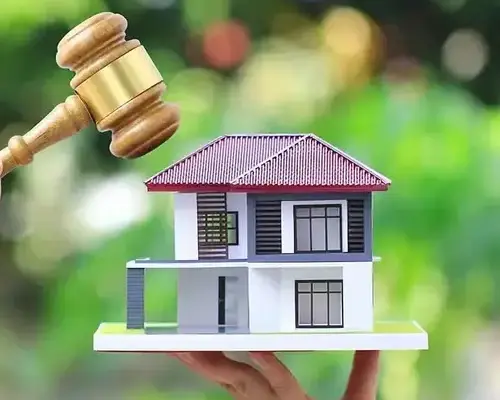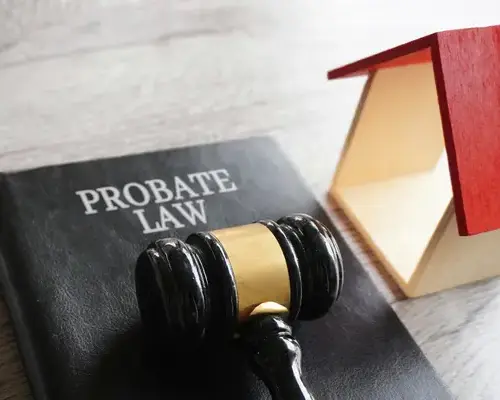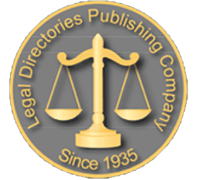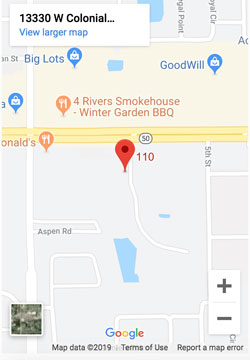A Guide to Residential Real Estate Litigation Attorneys
A neighbor’s new fence is suddenly three feet onto your property. The seller of your new home failed to mention the recurring plumbing issues. Your landlord is refusing to return your security deposit for unjust reasons. These common real estate problems can feel incredibly frustrating and leave you wondering what you can do about it. While Florida law offers protections for property owners and tenants, enforcing your rights requires specific legal knowledge and a strategic approach. This is the exact work of a residential real estate litigation attorney. They are legal professionals who step into these messy situations to advocate for your best interests and find a clear path toward a fair resolution.
Key Takeaways
- Use Legal Counsel to Prevent Problems, Not Just Solve Them: Many real estate disputes are avoidable. Involving an attorney early to review contracts, check titles, and identify potential risks is a proactive step that protects your investment and saves you from future conflicts.
- Choose Your Attorney Wisely and Be an Active Partner: The right attorney has specialized Florida real estate experience and communicates clearly. Your relationship is a partnership, and success depends on you providing complete documentation and staying involved in the strategy.
- Understand the Cost as an Investment in Your Property: Don’t let the fear of fees prevent you from getting crucial advice. A transparent discussion about costs is key, and the expense of hiring a professional is minimal compared to the potential loss from a poorly handled transaction or dispute.
What Does a Real Estate Litigation Attorney Do?
When you think of real estate, you probably picture signing papers at a closing or getting the keys to a new home. But property ownership isn’t always straightforward. Disputes can arise, and when they do, a real estate litigation attorney is the professional you need on your side. They are legal specialists who step in to represent clients when disagreements over property lead to a potential court case. Their job is to protect your interests, manage the complexities of the legal system, and work toward a resolution that defends your property rights.
Defining Their Role and Responsibilities
Think of a real estate litigation attorney as your advocate in any property-related conflict. Their primary responsibility is to represent you in disputes involving real estate. This goes beyond just filing paperwork; they investigate your claim, gather evidence, negotiate with the opposing party, and, if necessary, argue your case in court. They handle the legal heavy lifting so you can focus on the big picture. Whether you’re dealing with a contract breach or a property line issue, their goal is to guide you through the legal process and find the best possible path forward for your specific situation.
Common Cases They Handle
The world of real estate law is broad, and so are the cases a litigation attorney manages. They work with a wide range of clients, including homeowners, landlords, developers, and business owners. Some of the most common disputes they handle include disagreements over purchase and sale contracts, conflicts with homeowners’ associations (HOAs), and arguments about property boundaries or easements. They also represent clients in landlord-tenant disputes, title defects, and issues related to hidden problems with a property discovered after a sale. Essentially, if a real estate deal has gone sour or a conflict has emerged, they are the ones to call.
Litigation vs. Transactional Attorneys: What’s the Difference?
It’s helpful to understand that not all real estate lawyers do the same thing. A transactional attorney is who you see for the smooth parts of a deal—they draft and review contracts, facilitate closings, and ensure all the paperwork is in order for a property transfer. A litigation attorney, on the other hand, steps in when a dispute arises from that transaction or from property ownership in general. While a transactional lawyer works to prevent problems, a litigator resolves them once they’ve occurred. The best litigation attorneys are skilled negotiators and strong communicators who are prepared to represent your interests in and out of the courtroom.
When Should You Call a Real Estate Attorney?
Most real estate deals close without a hitch, but when problems pop up, they can get complicated fast. Knowing when to bring in a legal professional can save you a lot of stress, time, and money. Certain situations are simply too complex or carry too much risk to handle on your own. If you find yourself in a dispute where your property rights or a significant financial investment are on the line, it’s time to get expert advice. An attorney can help protect your interests and guide you toward a clear resolution.
Boundary Lines and Title Disputes
It’s easy to assume property lines are set in stone, but disagreements happen more often than you’d think. Maybe a neighbor’s new fence is creeping onto your land, or you’re dealing with a nuisance that affects your ability to enjoy your home. You might also run into issues with easements, which grant someone else the right to use a part of your property. These disputes can quickly become personal and heated, making a neutral, professional perspective essential. A real estate litigation attorney can help clarify property boundaries, interpret complex title documents, and defend your ownership rights before the situation escalates further.
Disagreements Over Purchase Agreements
A purchase agreement is a legally binding contract, but that doesn’t stop disputes from arising. A buyer might back out of a sale without a valid reason, or a seller might fail to disclose a serious defect with the property. You could also face problems with escrow funds being held improperly or arguments over which fixtures were included in the sale. When one party doesn’t hold up their end of the deal, you need someone who understands Florida contract law. An attorney can review your agreement, explain your options, and work to enforce the terms of the contract, whether through negotiation or legal action.
Hidden Property Defects and Construction Issues
Discovering a major problem after you’ve bought a home—like a leaky roof or a cracked foundation that wasn’t disclosed—is a homeowner’s nightmare. Similarly, if you’ve had construction work done, you might face issues like shoddy workmanship or a mechanic’s lien filed against your property by an unpaid subcontractor. These problems can be expensive and complicated to fix, often requiring expert testimony and a deep understanding of construction law. A lawyer can help you determine who is at fault and pursue a claim to cover the costs of repairs or to get an improper lien removed from your property’s title.
Landlord-Tenant Disagreements
Whether you’re a landlord or a tenant, disagreements can disrupt your life and finances. Conflicts often arise over issues like evictions, security deposit returns, property maintenance, or breaches of the lease agreement. Florida has very specific laws that govern the rights and responsibilities of both parties, and failing to follow them can have serious consequences, including financial penalties. If you’re involved in a dispute, consulting with an attorney ensures your actions are compliant with the law and that your rights are protected throughout the process, from sending the proper notices to representing you in court if necessary.
HOA and Neighborhood Covenant Problems
Homeowners associations (HOAs) have rules designed to maintain property values, but they can also be a source of conflict. You might find yourself in a dispute over an unfair fine, selective enforcement of the rules, or the HOA’s failure to maintain common areas like pools or roads. The governing documents for an HOA are often long and full of complex legal language that can be difficult to interpret. An attorney can help you understand your rights and obligations under the covenants and represent you in a dispute with your HOA board. Our team of experienced attorneys can help you find a path forward.
How to Choose the Right Real Estate Attorney
Finding the right attorney can feel like the most challenging part of a real estate dispute, but it’s also the most critical step you’ll take. You aren’t just hiring someone to handle paperwork; you’re looking for a strategic partner who will guide you through a complex and often stressful process. The right person will not only have the technical legal skills but will also be someone you can trust to protect your interests.
When you start your search, it’s easy to get overwhelmed by the options. To cut through the noise, focus on a few key qualities that separate a good attorney from a great one. Think about their specific experience, local knowledge, communication style, and professional track record. These factors will directly impact the outcome of your case and your peace of mind along the way. Making an informed choice now sets the foundation for a successful resolution, whether you’re dealing with a title dispute, a purchase agreement disagreement, or issues with a landlord. Feeling confident in your legal counsel allows you to focus on moving forward while they handle the legal complexities.
Specialized Experience in Florida Real Estate
Florida’s real estate landscape is governed by a unique set of laws and regulations. You need an attorney who doesn’t just dabble in real estate law but lives and breathes it. A lawyer with specialized experience will be intimately familiar with everything from homestead exemptions to specific contract disclosure requirements. They’ve seen cases like yours before and understand the common pitfalls and strategic opportunities. When you interview potential attorneys, ask them directly about their experience with your specific type of problem. Their answer will tell you a lot about their ability to handle your case effectively. True expertise in Florida real estate law is not just a bonus—it’s a necessity.
Deep Knowledge of the Local Market
Real estate is fundamentally local. An attorney who understands the nuances of your specific city or county offers a significant advantage. They are familiar with the local courts, judges, and even opposing counsel, which can be invaluable in planning a legal strategy. This local insight also extends to market-specific issues, zoning regulations, and common practices in your area. For example, handling a dispute in Orlando may involve different considerations than one in Hillsborough County. An attorney with a deep understanding of the local market can provide more tailored and effective advice, helping you anticipate challenges and make smarter decisions throughout your case. You can often get a sense of this by reviewing the firm’s team of attorneys and their local ties.
Clear and Consistent Communication
You should never feel like you’re in the dark about your own case. A great real estate attorney is one who can explain complex legal issues in plain, understandable language. They should be responsive to your questions and proactive in providing updates. During your initial consultation, pay attention to how they listen and how they explain their initial thoughts on your situation. Do you feel heard? Do you understand the path forward? You want a legal professional who communicates well and sets clear expectations from the start. Don’t hesitate to reach out and see how they handle that first point of contact; it’s often a good indicator of what’s to come.
Strong Negotiation Skills
Many real estate disputes are resolved long before they reach a courtroom. That’s why strong negotiation skills are essential. A skilled negotiator can often achieve a favorable outcome more quickly and with less expense than going through a full trial. This requires more than just being aggressive; it involves being a diligent listener, a clear communicator, and knowing when to push and when to compromise. A great attorney sees the big picture and works to find a resolution that protects your financial and personal interests. This strategic approach is a hallmark of effective business and real estate litigation, where the goal is always to secure the best possible result for the client.
A Solid Professional Reputation
An attorney’s reputation is built on their track record and the experiences of their past clients. Before making a final decision, do some research. Look for online reviews, client testimonials, and check their standing with The Florida Bar. A strong reputation is a good indicator of professionalism, reliability, and a history of achieving positive outcomes. You can also learn a lot from an attorney’s professional background and credentials. The lawyers at a reputable firm will have a history that speaks to their expertise and commitment. Ultimately, you want to trust your instincts. Choose an attorney who not only has the right qualifications but also makes you feel confident and supported.
What to Expect From the Legal Process
Stepping into a legal dispute can feel overwhelming, but understanding the road ahead can make all the difference. While every real estate case is unique, the legal process generally follows a structured path. From your first conversation with an attorney to the final resolution, knowing what’s coming next helps you stay prepared and focused on your goals. Let’s walk through the typical stages of a residential real estate case.
Your First Meeting
Your journey begins with an initial consultation. This is a crucial first step where you’ll share the details of your situation with an attorney who will gather information, explain the legal process, and discuss potential outcomes. Think of it as a strategy session where you can ask questions and see if the attorney is the right fit. To make the most of this time, bring any relevant documents, like contracts or deeds. You can contact our office to schedule this foundational meeting and get started.
Evaluating Your Case and Planning a Strategy
After your first meeting, your attorney will build a strategy. A great litigation lawyer is a diligent listener and a strong communicator who sees the big picture. They will thoroughly review your documents, research Florida law, and analyze the strengths and weaknesses of your position. Based on this evaluation, they will outline a clear plan of action covering the recommended legal steps, potential challenges, and an estimate of the timeline and costs. Our team of experienced attorneys is skilled at developing tailored strategies to protect your interests.
How Disputes Are Resolved
Not every disagreement ends up in a courtroom. In fact, most don’t. Real estate disputes can be resolved through negotiation, mediation, or litigation, depending on the case and everyone’s willingness to find common ground. Negotiation involves direct discussions to reach a settlement, while mediation brings in a neutral third party to guide the conversation. If those methods don’t work, litigation—taking the case to court—becomes the next step. Your attorney will advise you on the best approach for your real estate dispute.
Potential Timelines and Court Steps
One of the most common questions is, “How long will this take?” The timeline for resolving a real estate dispute can vary significantly based on the case’s complexity, the court’s schedule, and whether the parties will settle. A straightforward issue might be resolved in a few months, while a complex case that goes to trial could take much longer. If your case proceeds to litigation, the process involves formal steps like filing a complaint and gathering evidence. Your attorney will be your guide, keeping you informed at every stage of the process.
How to Partner With Your Attorney for the Best Outcome
Hiring a real estate litigation attorney is the first step, but the success of your case often depends on how well you work together. Think of it as a partnership. Your active involvement, clear communication, and willingness to collaborate are just as important as your lawyer’s legal expertise. When you and your attorney are in sync, you create a much stronger front. By taking an active role, you can help steer the case toward a resolution that truly meets your needs and protects your interests in your property.
Gathering the Right Documents
Before your attorney can build a strong case, they need a complete picture of the situation. Your first task is to gather every piece of paper and digital file related to your dispute. This includes the purchase agreement, property deed, title reports, inspection records, emails with the other party, HOA correspondence, and any photos or videos. It’s essential to provide your attorney with a comprehensive understanding of your situation from the very beginning. The more organized and thorough you are, the more efficiently your legal team can get to work on your real estate law matter and start developing a strategy.
Keeping the Lines of Communication Open
A successful partnership is built on trust and transparency. Effective communication is crucial throughout the legal process to ensure you and your attorney are aligned on the case’s progress and strategy. Don’t hesitate to ask questions if you don’t understand something, and be sure to provide your lawyer with any new information that comes up. Likewise, be responsive when your attorney reaches out. A steady flow of information in both directions prevents misunderstandings and ensures that no important details fall through the cracks. This open dialogue helps your attorneys represent you effectively at every stage.
Your Role in Shaping the Strategy
While your attorney brings legal knowledge, you are the expert on your own circumstances and what you hope to achieve. Your insights and experiences can significantly influence the case strategy, so it’s important to share your thoughts and concerns openly. Be clear about your goals from the start. Are you looking for financial compensation, specific performance on a contract, or simply a quick resolution? Trust your instincts and speak up if a proposed strategy doesn’t feel right to you. Your perspective is a valuable asset that helps tailor the legal approach to your specific situation.
Thinking About a Settlement
Many people think that hiring a litigation attorney means you’re destined for a dramatic courtroom battle, but that’s rarely the case. Most real estate disputes are resolved through negotiation or mediation long before a trial. Understanding the potential for a settlement can help you manage your options effectively. A settlement isn’t a sign of weakness; it’s often a strategic move that can save you time, money, and stress. Your attorney will advise you on whether a settlement offer is fair and in your best interest, but the final decision always rests with you.
What Will It Cost? A Look at Legal Fees
Let’s talk about one of the biggest questions on everyone’s mind: the cost. Understanding legal fees can feel overwhelming, but it doesn’t have to be. The goal is to find a transparent partner who can explain the potential costs upfront so you can make an informed decision for your situation. While every case is unique, knowing the common fee structures and what to expect can give you confidence as you move forward. Think of legal counsel not as a cost, but as an investment in protecting one of your most significant assets.
How Attorneys Typically Charge
Attorneys charge for their services in a few different ways, depending on the type of work you need. For straightforward, predictable tasks like a residential closing, many attorneys charge a flat fee. This is a single, upfront cost that covers the entire process, typically ranging from $750 to $1,500. For more complex situations, like a property dispute that may go to court, an hourly rate is more common. Here, you pay for the actual time the attorney spends working on your case. Rates can vary based on the lawyer’s experience and the specifics of your dispute. The key is to have a clear conversation from the start about the fee structure so there are no surprises.
Other Costs to Expect
Beyond the attorney’s fee, litigation often involves other expenses. These are the operational costs of moving a case forward and can include things like court filing fees, the cost of hiring expert witnesses (like a property appraiser), or fees for official transcripts from depositions. These costs are separate from your attorney’s billable hours. A good lawyer will give you an estimate of these potential expenses early on. This transparency is a hallmark of a trustworthy real estate law firm and helps you budget for the entire legal process, not just the legal advice.
Available Payment Options
Most law firms offer a few ways to handle payment. For hourly work, you’ll likely be asked for a retainer. A retainer is an upfront payment that the law firm holds in a trust account. As your attorney works on your case, they will bill their time against that retainer. Hourly rates for real estate attorneys in Florida generally fall between $150 and $500, depending on the lawyer’s expertise. The best way to understand exactly how you’ll be billed is to ask directly during your initial consultation. Don’t hesitate to contact us to discuss your situation and get a clear picture of the potential costs.
Why Professional Help Is a Smart Investment
Hiring an attorney might seem like a significant expense, but it’s one of the smartest investments you can make to protect your property. A dispute can put your home and financial stability at risk. An experienced attorney ensures your rights are defended, prevents you from making costly mistakes, and handles the complex legal procedures so you don’t have to. The cost of legal representation is often a fraction of what you could lose in a property dispute. Having professional guidance provides not just legal support, but also peace of mind. Working with skilled attorneys ensures that every detail is handled correctly, saving you stress, time, and money in the long run.
Clearing Up Common Myths About Real Estate Attorneys
When it comes to real estate, a few common misconceptions can keep people from getting the legal help they need. These myths often create unnecessary stress and can lead to costly mistakes. The truth is, a real estate attorney is one of the most valuable members of your team, whether you’re buying your first home, investing in commercial property, or dealing with a dispute. Let’s clear the air and look at some of the most persistent myths about working with a real estate lawyer. By understanding their true role, you can make more informed decisions and protect your interests from start to finish.
Myth: You Only Need a Lawyer If You’re Going to Court
Many people think of lawyers only in the context of a courtroom battle, but that’s a very narrow view of what they do. A huge part of a real estate attorney’s job is proactive, not reactive. They work to prevent problems before they ever have a chance to escalate into a lawsuit. Bringing an attorney in early to review purchase agreements, check titles for issues, or advise on zoning laws can save you from future headaches. They are your advocates during negotiations and your guides through complex paperwork, ensuring every detail is handled correctly long before a dispute arises.
Myth: Hiring an Attorney Is Too Expensive
The fear of high legal fees can be intimidating, but it’s important to see this cost as an investment rather than just an expense. The upfront cost of hiring an attorney is often minor compared to the potential financial losses from a poorly written contract, a hidden title defect, or a dispute that ends up in litigation. An experienced lawyer can spot red flags you might miss, saving you thousands in the long run. At Legal Counsel, P.A., we believe in transparency and will discuss our fee structure with you from the beginning so you know exactly what to expect.
Myth: I Can Handle the Legal Work Myself
With so much information available online, it can be tempting to take a DIY approach to your real estate transaction. While it’s technically possible, it’s also incredibly risky. Florida real estate law is complex and full of potential pitfalls that aren’t obvious to the untrained eye. A simple mistake in a legal document can have serious and lasting consequences. The experienced attorneys at our firm have spent years mastering these details. Relying on their expertise ensures your transaction is handled correctly and your rights are protected every step of the way.
Myth: My Real Estate Agent Can Handle Legal Issues
Real estate agents are essential for finding properties, marketing your home, and negotiating prices. They are experts in their field, but their field is not law. While agents can help with many parts of a transaction, they are not legally qualified to provide advice on contracts, title issues, or other legal matters. This is a critical distinction. An attorney’s job is to represent your legal interests exclusively, ensuring that all agreements are sound and that you are protected from liability. Having both an agent and an attorney on your team means every angle of your transaction is covered by a dedicated professional.
How to Prevent Real Estate Disputes Before They Start
The best way to win a real estate dispute is to prevent it from ever happening. While not every issue can be foreseen, taking proactive steps can save you a significant amount of time, money, and stress. By being thorough and strategic from the very beginning, you can protect your investment and ensure a much smoother transaction. It all starts with having the right professional guidance to help you see around corners and prepare for what’s ahead.
The Importance of a Professional Contract Review
A real estate contract is a dense, legally binding document. Before you sign on the dotted line, it’s essential to have an experienced attorney review it. A lawyer specializing in Florida real estate law can decipher the complex legal jargon and identify any vague terms, unfavorable clauses, or potential loopholes that could cause trouble down the road. They ensure your rights are protected and that the agreement accurately reflects your intentions. This single step is one of the most effective ways to prevent misunderstandings and future disagreements about the terms of the sale.
Identifying Potential Risks Early
Beyond the contract itself, a skilled attorney helps you identify potential risks tied to the property. This involves guiding you through the due diligence process, which includes title searches to uncover liens or ownership issues, reviewing inspection reports for hidden defects, and understanding local zoning ordinances that could affect your plans for the property. An attorney with deep local knowledge can spot red flags that you or even your agent might miss. Addressing these issues early on, before they have a chance to grow into major conflicts, is key to a successful real estate transaction.
Ensuring Your Transaction Is Compliant
Florida has a specific set of laws and regulations governing real estate transactions, from mandatory disclosures to closing procedures. Failing to comply with these rules can invalidate a sale or open you up to legal action. A real estate attorney ensures that every aspect of your transaction is compliant with state and local laws. They manage the paperwork, verify that all legal requirements are met, and confirm that the title is clear. This meticulous attention to detail provides peace of mind and protects you from legal complications long after the deal is done.
Setting Yourself Up for a Smooth Closing
The closing process is the final step, but it’s also where many deals can fall apart due to last-minute issues. An attorney plays a crucial role in facilitating a smooth closing by coordinating with all involved parties, including the lender, title company, and the other party’s representatives. They manage deadlines, review closing documents, and resolve any eleventh-hour problems that arise. Having one of our attorneys act as your advocate ensures clear communication and keeps the process moving forward, helping you cross the finish line without any unwelcome surprises.
Related Articles
- Florida Real Estate Lawyers: Top 7 Essential Tips 2024
- Real Estate Attorney Coral Springs: Top 5 Must-Know Secrets
- Real Estate Litigation: Top 5 Proven Tips for Success 2024
- Florida Real Estate Lawyers – Legal Counsel P.A.
Frequently Asked Questions
Do I need a litigation attorney for a simple home purchase? Typically, no. For a smooth transaction where everyone is in agreement, a transactional real estate attorney or a title company handles the closing process. A litigation attorney steps in when a conflict arises from that transaction or from your property ownership in general. Think of it this way: a transactional lawyer helps you build the house, and a litigation lawyer helps when the foundation starts to crack.
Is it ever too early to contact an attorney about a potential property issue? Absolutely not. Getting legal advice early is one of the smartest things you can do. Contacting an attorney at the first sign of trouble—whether it’s a confusing clause in a contract or a disagreement with a neighbor—can often prevent the situation from escalating into a major dispute. A quick consultation can clarify your rights and help you map out a plan, potentially saving you a great deal of stress and expense down the road.
My dispute is with my HOA, not another homeowner. Is that something a real estate litigation attorney handles? Yes, conflicts with homeowners’ associations are a very common reason to seek legal help. HOA governing documents are complex legal contracts, and disagreements over fees, rule enforcement, or maintenance responsibilities fall squarely within the practice of real estate litigation. An attorney can help you interpret the bylaws, communicate with the board, and defend your rights as a homeowner.
What if I can’t afford a long, drawn-out court battle? This is a very common and valid concern. The good news is that most real estate disputes never actually go to trial. A skilled litigation attorney is also an expert negotiator who will work to resolve your issue through direct discussion or mediation. These methods are almost always faster and more cost-effective than going to court, and a settlement often provides a more practical and satisfying solution for everyone involved.
What is the single most important thing I can do to prepare for my first meeting with an attorney? Gather your documents. The most helpful thing you can do is to collect every piece of paper related to your issue before your consultation. This includes contracts, deeds, emails, text messages, photos, and any official notices you may have received. Having all the information organized and ready allows the attorney to get a clear picture of your situation quickly and give you the most accurate and effective advice from day one.

